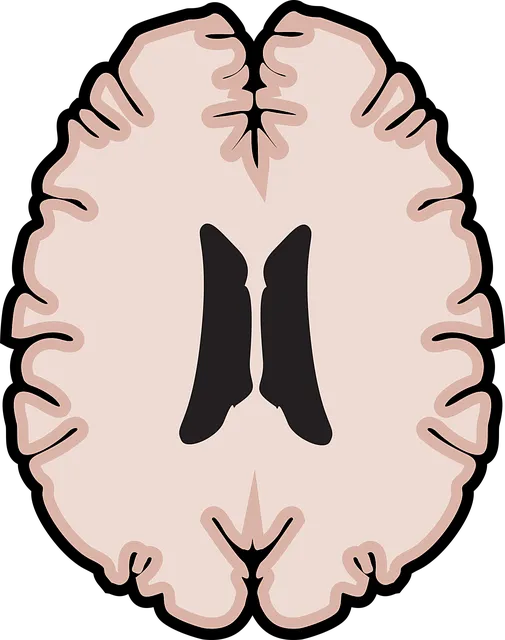Kaiser Permanente Mental Health Facility Englewood offers personalized, holistic crisis intervention focusing on both immediate distress and long-term resilience. They utilize strategies from Mind Over Matter and Emotional Intelligence, along with regular staff training and self-care practices, to prevent burnout and ensure high-quality care. Early identification of signs and triggers, open discussion environments, and active listening techniques enable effective crisis management. Post-crisis care includes individualized plans and evidence-based practices like mindfulness meditation, aiming to reduce stigma and empower individuals for lifelong mental health improvement. Community-based interventions strengthen local support networks, fostering collaboration among neighborhood centers, schools, and healthcare providers to enhance crisis prevention and resource access.
“At the Kaiser Permanente Mental Health Facility in Englewood, crisis intervention strategies play a vital role in providing immediate support and long-term recovery for individuals facing psychiatric emergencies. This article delves into effective guidance, exploring key components from early detection to community-based interventions. We examine how the Kaiser Permanente facility leverages its expertise to identify signs and triggers, respond swiftly, and foster resilient communities, ultimately enhancing mental health services within the Englewood region.”
- Understanding Crisis Intervention at Kaiser Permanente Mental Health Facility Englewood
- Identifying Signs and Triggers: Early Detection Strategies
- Immediate Response Techniques for On-Site Support
- Post-Crisis Care and Recovery Planning
- Building Resilient Communities: Community-Based Interventions
Understanding Crisis Intervention at Kaiser Permanente Mental Health Facility Englewood

At Kaiser Permanente Mental Health Facility Englewood, crisis intervention is a cornerstone of patient care. The facility recognizes that mental health crises can be complex and varied, affecting individuals differently based on their unique backgrounds, experiences, and challenges. As such, they employ strategies that are tailored to each person’s specific needs. This approach, grounded in the principles of Mind Over Matter, focuses not just on addressing immediate distress but also on building long-term resilience and coping mechanisms.
The mental health professionals at Kaiser Permanente Englewood integrate Emotional Intelligence into their interventions, fostering a safe and supportive environment where patients feel heard, understood, and empowered. By prioritizing burnout prevention through regular staff training and self-care practices, the facility ensures that its care team remains equipped to provide consistent, high-quality support. This holistic approach not only enhances patient outcomes but also contributes to a healthier, more sustainable working environment for the dedicated professionals at Kaiser Permanente Mental Health Facility Englewood.
Identifying Signs and Triggers: Early Detection Strategies

Identifying signs and triggers early is a cornerstone of crisis intervention strategies, especially at a mental health facility like Kaiser Permanente in Englewood. Trained professionals play a vital role in navigating individuals’ emotional states and recognizing subtle cues that might indicate an impending crisis. This involves paying close attention to changes in behavior, mood, or communication patterns. For instance, sudden withdrawal from social interactions, extreme irritability, or distinct shifts in sleep patterns can be red flags. Early detection allows for timely intervention, enabling professionals to provide support before the situation escalates.
At Kaiser Permanente Englewood, emotional well-being promotion techniques and self-esteem improvement strategies are integral parts of these early detection methods. Public awareness campaigns development aimed at educating both staff and the community on recognizing these signs can significantly contribute to preventing crises. By fostering an environment where individuals feel comfortable discussing their mental health and emotions openly, the facility ensures that potential triggers are identified promptly, leading to more effective crisis intervention and better outcomes for those in need.
Immediate Response Techniques for On-Site Support

When crisis intervention is required at a Kaiser Permanente mental health facility like Englewood, immediate response techniques are crucial for on-site support. Trained healthcare providers play a pivotal role in de-escalating situations and offering effective assistance. These techniques emphasize rapid assessment and the provision of emotional support tailored to the individual’s needs. For instance, practicing active listening enables providers to understand the person’s distress and respond empathetically, fostering a sense of safety and trust.
The implementation of these strategies requires robust cultural competency training for healthcare providers. This training equips them with the skills to navigate diverse cultural backgrounds, beliefs, and perspectives, ensuring sensitive and effective interventions. Moreover, integrating depression prevention methods and empathy-building strategies within crisis care can significantly improve patient outcomes, as they address underlying emotional needs during a critical period.
Post-Crisis Care and Recovery Planning

After the immediate crisis has passed, individuals and communities often face a lengthy journey toward recovery. Post-crisis care plays a pivotal role in this process, and facilities like the Kaiser Permanente mental health facility in Englewood are well-equipped to provide specialized support. This stage involves creating individualized plans that cater to the unique needs of each person or community. At the Kaiser Permanente Englewood location, professionals offer evidence-based practices such as mindfulness meditation and coping skills development to aid in long-term healing.
Additionally, addressing the pervasive issue of mental illness stigma reduction efforts is an integral part of recovery. By fostering open dialogues and promoting understanding, individuals are empowered to seek help without fear of judgment. Through these comprehensive approaches, the Kaiser Permanente facility contributes significantly to the well-being of its patrons, ensuring that they receive not only short-term relief but also the tools necessary for sustained mental health and resilience.
Building Resilient Communities: Community-Based Interventions

Building resilient communities is a key strategy to enhance crisis intervention efforts, particularly in areas like Englewood, where access to resources may be limited. Community-based interventions focus on empowering local residents and organizations to take an active role in preventing and managing crises. This approach aligns with the goals of Kaiser Permanente’s mental health facility in Englewood, which aims to promote holistic well-being within the community.
By fostering collaboration among neighborhood centers, schools, faith-based organizations, and healthcare providers, these interventions can implement effective burnout prevention strategies for healthcare providers while also enhancing social skills training and conflict resolution techniques. Such a unified front strengthens the community’s ability to support individuals during times of crisis, ensuring that everyone has access to the resources they need to navigate challenging situations successfully.
In conclusion, effective crisis intervention strategies, as exemplified by practices at the Kaiser Permanente Mental Health Facility in Englewood, involve a comprehensive approach. From early detection and immediate response techniques to post-crisis care and community-based interventions, each component plays a vital role in supporting individuals and building resilient communities. By understanding signs, triggers, and implementing guidance from leading facilities like Kaiser Permanente, we can enhance mental health support systems and foster better outcomes for those facing crises.






